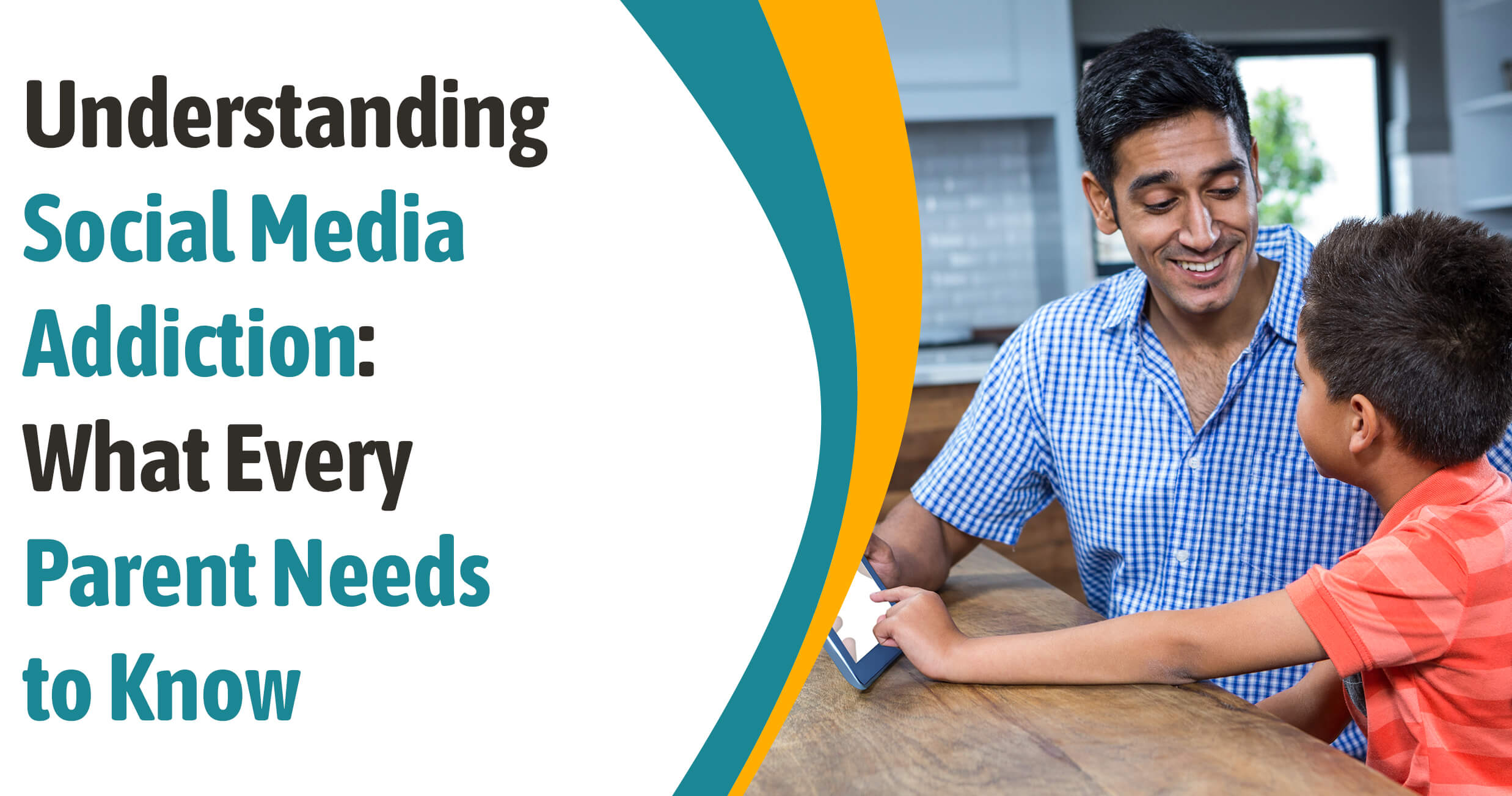
When was the last time you noticed your child really present, not merely physically in the room, but emotionally engaged, looking you in the eye, and not down at a screen?
If that moment is too distant to recall, rest assured that you are not the only one.
Social media is not simply a hobby these days. For far too many of our children, it’s become part of who they are. Social media sites such as Instagram, TikTok, Snapchat, and more are where they socialize, communicate, getaway, and occasionally, regrettably, lose themselves. The reality is something that began as innocent swiping has become, for so many kids and teens, something more profound: addiction.
We know the word addiction is heavy. And yes, it may feel alarming. But it’s important to acknowledge it honestly and openly. Social media addiction is not just about screen time. It’s about the emotional dependency, the compulsive behavior, and the withdrawal symptoms when that digital connection is taken away.
Consider this: how many times does your child look at their phone as soon as they wake up? Do they become fidgety, nervous, or even cross when their phone is removed from their hands? These are such subtle signals. But they are deafening pleas for assistance.
You might have attempted to step in, perhaps by restricting screen use, promoting outside play, or confiscating devices entirely. And maybe you’ve been rebuffed, frustrated, or even emotionally upset. It’s as if you’re losing them to a reality you don’t comprehend. That’s a really hurtful place for a parent to be.
We get it.
This is not a question of poor parenting. Just the fact that you are concerned says a great deal about how much you care. What’s going on is much larger than your family alone, it’s a worldwide phenomenon, one that’s impacting families in every culture and community.
Social media is designed to be addictively engaging and continually stimulate the brain with small doses of dopamine, a feel-good hormone that creates a rush when we receive approval or praise, such as eating chocolate or getting compliments. For young, developing brains, this can be very potent. It trains them to come back again and again to seek online approval and validation.
Throw in the need to be noticed, to be ideal, to keep pace, and suddenly a teen’s self-value is perilously wrapped up in the quantity of followers they have or the number of viewers of their new video.
Not only is this exhausting—it’s harmful.
You might be wondering, “How can I assist my child without driving them away?” That’s the essence of this discussion. These are some practical, loving steps:
Rather than telling a child, “You’re always on your phone,” say, “I notice you look stressed when you’re online. Can we discuss that?” Open-ended, non-judgemental talks leave room for honesty.
Explore the topic of social media addiction with your child. Watch documentaries, read articles, or even listen to podcasts together. When they see that you’re willing to learn too, they’ll be more open to listening.
This isn’t punishment. It’s about keeping everyone’s mental health—yours included—safe. Establish phone-free zones, such as at the dinner table or in bed. Show your children you’re also working at it. Be the example they can follow.
If your child’s mood, school, or social relationships are suffering, talking to a counselor or psychologist may just change their life. It’s a sign of strength, not weakness.
Dear parent, your anxiety is real. Your frustration, your grief, your intense desire to reach your child again—it’s real. And it counts. This journey can be daunting, but you don’t have to navigate it by yourself.
There are support groups, workshops, internet sites, and professionals who get it. Most importantly, there are thousands of other parents like you, doing their best each and every day.
Please remember this: you are still very important to your child even when their eyes are glued to a screen. Your voice, your presence, your love—it still grounds them in this whirlwind digital storm.
Let’s continue the conversation. Let’s be curious, not judgmental. And above all, let’s remind our children that they are more than any “like” could ever be.